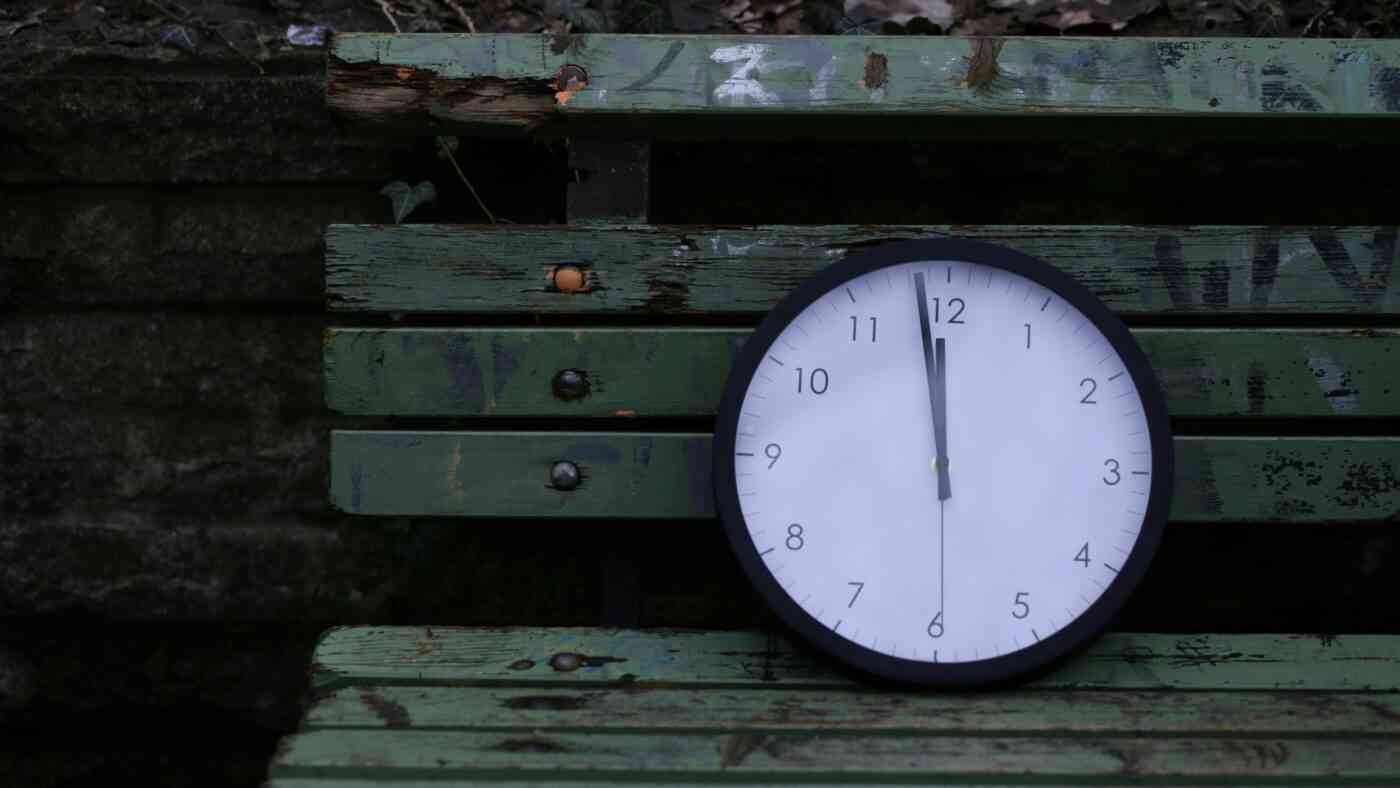Truth & Goodness
Seconds from Midnight: The 2026 Doomsday Clock Hits 85 Seconds
18 February 2026

School is a trauma, a prison, and Prussian barracks rolled into one. This is what some of its critics seem to assert, advocating for less discipline and a reduction in the amount and depth of knowledge required from students. Metaphorically speaking, they propose making schools “plush.” However, such an understanding of educational reform has nothing to do with the spirit of emancipation and even appears to be its antithesis.
Currently, schools are not receiving good press. They are blamed for the poor mental state of the young generation, caused by an overwhelming amount of knowledge to master. Some go further, calling school itself a trauma, likening it to barracks or a prison, although it is not particularly stressful compared to various life circumstances. Nor does it resemble the nineteenth-century Prussian school to which it is constantly compared – except in one respect: Prussia introduced compulsory schooling, which meant banning child labor in factories. Indeed, it is hard to criticize this principle from a progressive standpoint. The Prussian school was known for its strict discipline, comparable to military standards, though this is somewhat exaggerated – after all, children were not taught to use weapons or risk their lives.
In Polish schools in the year 2024, such discipline does not prevail. Children and adolescents have a wide range of freedoms – they are not required to wear uniforms and do not stand at attention to greet the teacher. Nor do they face punishments such as staying after classes to write “I promise to do better” 200 times. No one smacks them with a ruler on the hands and places them in the corner, or labels them a scourge of humanity for misbehavior. In today’s schools, student rights are upheld, and care is taken to ensure they are not overburdened. Teachers strive to make lessons engaging without losing sight of their primary mission, which is to impart knowledge.
School is often accused of being an authoritarian place that crushes individuality, almost a graveyard of creativity. Various ways of thinking lead to these untrue generalizations, but I will identify three dominant trends in anti-school demagoguery. I call them poverty Foucault-ism, the school of perpetual pleasure, and the plush-lined school.

Michel Foucault, regarded as a leftist guru, did not actually preach emancipatory principles, and his vision, when simplified and applied to schooling, proves to be regressive. According to Foucault, every social relation is a power relation, and power is inherently negative and effectively oppressive in all its forms. Thus, in an extreme simplification, school is akin to a less strict prison or an army without rifles – a place of cruel oppression of young people. It should be locked up tight and let everyone fend for themselves: the poor should work instead of learning, and the rich should find themselves private educational establishments.
If we speak of the tradition of emancipation, it was embodied by a different current than that leading to Foucault. The first emancipatory theorist of education was the French philosopher Jean Antoine Nicolas de Condorcet, a participant in the French Revolution who was killed by supporters of one of the factions after its conclusion. Condorcet, trained as a mathematician and born an aristocrat, devised a plan to create schools where there would be no exclusions based on gender, race, residence, or parental wealth. Schools were to be universal, coeducational, free of religious lessons, and free of charge. Universities were to open to women, whose talents were drastically wasted by admitting only men to university studies. Branches in smaller towns would enable people from outside major urban centers to study.
Condorcet advocated for the creation of free educational institutions for people who had not received education in childhood. He was concerned that people should not be divided into two classes – those with knowledge and those without. Hence, he proposed not only to equip children and adults with knowledge but also with the ability to acquire it, select information, and determine whether they were being deceived by someone in a position of scientific or religious authority. His ideas remain relevant today. Thanks to the internet, we have a vast amount of information at our fingertips, yet without discernment, we become more, not less, gullible, and susceptible to neatly packaged false conclusions.
We recommend: On Addiction Mechanisms
Another thinker in the emancipatory tradition was the Italian philosopher Antonio Gramsci – a communist who spent most of his life in prison for criticizing Mussolini. He observed the same phenomenon as Condorcet but about the humanities. Children from noble families with intellectual traditions were exposed to classical literature and painting and learned Latin and Roman law. Children whose parents were illiterate learned in school the social difference between themselves and their privileged peers.
This difference seemed innate, insurmountable – after all, even the way these two groups formulated their thoughts was different. However, Gramsci believed that a well-organized educational system could overcome these barriers, but it required hard work from children from underprivileged homes and the cultural guidance of those more versed in culture to help others assimilate it. It is important to note that this is entirely incomprehensible to the culture of individualism at any cost, as advocated by anti-school environments.
Dewey – Learning is Not Playing
The last emancipatory education philosopher was American John Dewey, who worked mainly in the first half of the 20th century. He believed that education should be practical – explaining gravity through the example of a falling ball and the structure of a butterfly, and the mechanism of pollinating flowers in a meadow or forest. Geography lessons should begin with creating maps of the local area, and history lessons should involve children acquiring skills that were possessed by Americans living in harsh pioneer conditions.
For Dewey, the school was a society in miniature, with all its principles, chief among them that one must consider others, as otherwise chasing individual desires would create chaos detrimental to everyone. Dewey opposed learning merely out of obligation, but he was equally reluctant to make learning attractive at any cost. Interest is something that arises spontaneously within us, not as a result of fireworks that sometimes make learning more enjoyable. Children are curious about how the world functions and the goal is to let them explore it. The authority of teachers and adults is essential here, as it is with the maps created by previous generations that we navigate life. Before we create our own, we must understand our past and the rules governing the world and describe it with words.
Dewey, unlike Condorcet and Gramsci, enjoys popularity today, though not necessarily understanding. The anti-school current seeks to limit imparted knowledge – which it labels “encyclopedic,” a term that essentially means little since all knowledge, even the most fleeting, must be organized to be communicated. Modern schools are aware of the capacities and limitations of young minds and thus teach what they can absorb. However, anti-school demagoguery views any dose of knowledge as too extensive and overly abstract. It associates knowledge solely with fatigue, not with a sense of empowerment that rewards the effort put into learning. To avoid feeling weary, these views suggest we should only engage with the knowledge that can be learned through entertainment – the constant pleasure – and discard everything else as unnecessary baggage.
The consequence of this attitude includes the equally popular and nonsensical beliefs of various gurus without educational training, who claim everything can be learned by playing online games or browsing the internet for trivia. It is important to note that none of these activities is a social practice – they are undertaken away from other people, often known only as avatars on social media. Even if these were direct relationships, involving interaction with the physical world, they could not replace the most important task of schooling, which is education: on one hand, the integration into the social fabric of customs and learning how to use words, and on the other, a deeper understanding of the principles of the physical and biological world to which we belong. It is on this foundation that a realistic ethics emerges, aware of the individual’s possibilities and limitations, where moral development involves building responsibility for the fate of others.
We recommend: Education is to be Reinvented, Not Just Corrected
It is neither possible in the school of perpetual pleasure nor the rebellious destruction of poverty Foucault-ism. The ethical evolution is also hindered by the third, probably currently most popular, trend of abandoning reason, the plush-lined school. Before examining the arguments of this ideological formation, I must mention that it consistently confuses the disease with the cure. It recognizes the poor mental state of youth who cannot cope with stressors and easily succumb to nervous breakdowns.
What do critics of the school, who see it as the main source of these problems, propose in this situation? They argue that both school and earlier education should be safe not only physically but also psychologically. So safe that no sharp edge from the external world penetrates the educational space. Education should rid itself of “microaggressions,” or any statements that might cause discomfort in someone.
Is development possible under such circumstances? Can one learn the rules governing society in greenhouse conditions? The answer to both questions is “no.” Moreover, the consequence of such an approach is precisely weak resilience and a psyche that reacts with collapse to every, even the smallest, stressor.
As it turns out, it is not school discipline or the demands of knowledge that cause the deterioration of students’ mental health. Nor is it the difference of opinions between the younger and older generations, which is an inevitable state and by no means destructive. The fragility of children and adolescents stems precisely from treating them like delicate porcelain vessels. In such a situation, they do not even have a chance to rebel, unless against the remnants of requirements or free speech for those who think differently.
Education philosophers, starting from Jean-Jacques Rousseau, who wrote the educational treatise “Emile” in 1762, pointed out that a developing mind, like a body, needs obstacles to feel its strength increasing. Those raised in a plush space do not know the feeling of overcoming adversity at all. The world must adapt to them, otherwise they break down and might even harm themselves. Treating them always gently and without an element of discipline does not result in the formation of a gentle character. On the contrary, “snowflakes” – as the generation raised without obligations, challenges, and role models is commonly called – are aggressive individuals who do not tolerate dissent. Since they also struggle with internal conflicts, they easily fall, expecting, of course, someone to pick them up.
In conclusion, if someone in our environment or on a popular internet channel claims that the plush-lined school, poverty Foucault-ism, or the focus on perpetual pleasure are continuations of emancipatory thinking, do not believe them. All currents aimed at real social emancipation have emphasized the importance of reason and its development. When other values, even seemingly innocent ones like pleasure, safety, or aversion to authority, overshadow it, we can expect educational or even social regression. When we add the widespread egocentrism in the era of social media, we have a recipe for the ethical misguidance of an entire generation or even several. But I will address that in a subsequent text.
While preparing this article, I drew on my book Emancipation through Education: Education for Freedom, Equality, and Happiness, published by Gdańsk Psychological Publishing in 2011. The title of the essay was inspired by the name of the podcast I host with Bojan Stanisławski – Chronicles of Abandoning Reason.
Translation: Klaudia Tarasiewicz

Science
17 February 2026

Science
17 February 2026

Zmień tryb na ciemny